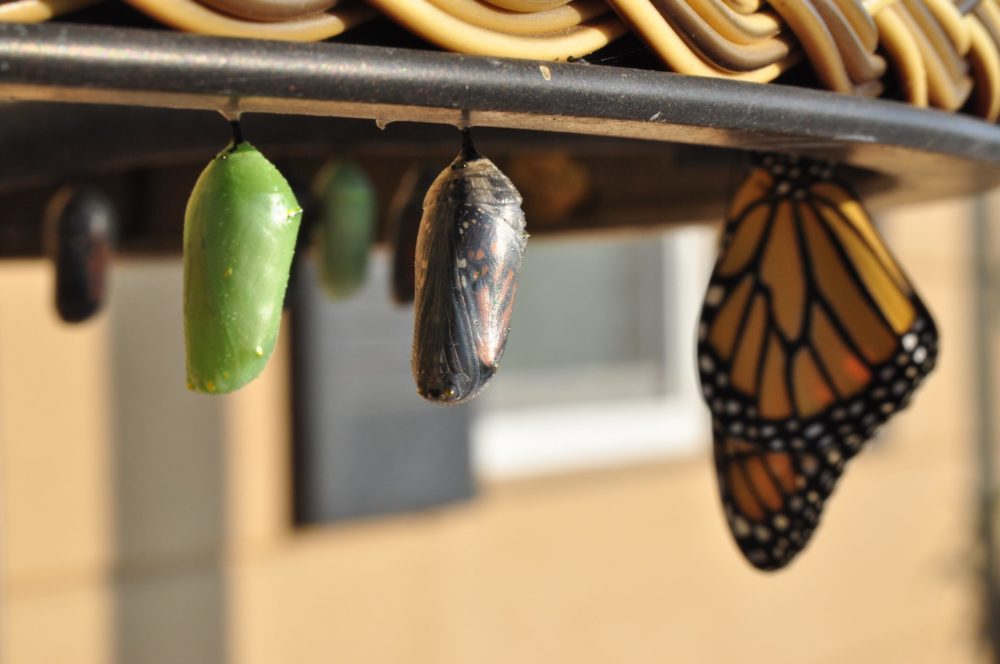Liturgy: “Trust the Process”
The more I see God’s actions – in my life, in Scripture, in the lives of others – the more I will grow in my trust that He will do all that He has promised. That trust will, in turn, be revealed in my actions, and not just in my words.

What is the King’s Liturgy? King’s Liturgy defines our experience together as a Christian community. It outlines the rhythms we celebrate with the Church at large: Scripture readings, Sabbath habits, and celebration of Holy Days and historical events.
This Week’s Lectionary Readings:
Genesis 12:1-4a
Romans 4:1-5, 13-17
John 3:1-17
Psalm 121
This week’s liturgy is contributed by Dr. Joshua Blander, Assistant Professor of Philosophy:
For the past several years, Philadelphia 76ers fans have been urged to “trust the process”, which amounts to watching management tear down the team and rebuild from scratch while believing that all will be glorious in the end. One of the most important players in this “process”, Joel Embiid, has even adopted “The Process” as his nickname (and subsequently trademarked it). The rebuild has been rather uneven, and this year’s high expectations have not been met (though nobody in Philadelphia is ever surprised when that happens).
This week’s Bible passages reveal God’s challenge to us to trust the process. In Genesis 12, God tells Abraham (then Abram) that He will bless him and make him a great nation. Flipping to Romans 4, we read Paul’s discussion of Abraham’s trust in God, which “was credited to him as righteousness”. Paul’s claim here might seem odd, though, to those who read the surrounding stories in Genesis 12. For example, when Abraham travels to Egypt, he tells everyone that his wife, Sarah, is actually his sister. Why? Because he is “prudentially” concerned that someone will murder him in order to steal his beautiful wife; how could he be blessed by God if he is dead, after all? The result is that Sarah was “taken into Pharaoh’s house” – I think we can all figure out what that means. Of course, this wasn’t the only time that Abraham made “sex mistakes” motivated by “prudential” concerns about whether God could fulfill His promises to Abraham. Remember Hagar?
These seem like the actions of someone who doesn’t trust the process. Why, then, does Paul tell us that Abraham believed God? Perhaps it is because Abraham really does believe – but only in part, and only slowly, over time. Abraham’s initial belief doesn’t completely remake his ordinary human psychology – he still worries about the many of the same things (e.g., famine) – including many of his desires and fears. As God engages with him, and he witnesses God’s pursuit of him, Abraham grows in his confidence in God’s provision, even if incompletely. Ultimately, Abraham is even willing to trust God with his son, Isaac, arguably the denouement of Abraham’s trusting the process.
There seem to be two distinct lessons in this.
First, there is still hope for us. I daily fail to “trust the process” in many little and big ways. Abraham’s case suggests that my trust can (and hopefully will) grow and mature over time. Our current faithlessness is not the end result. The more I see God’s actions – in my life, in Scripture, in the lives of others – the more I will grow in my trust that He will do all that He has promised. That trust will, in turn, be revealed in my actions, and not just in my words.
Second, the process does not depend on us. As much as we believe we must control everything in our lives, we should remember that God is the one who has the power to control the process; we do not. Joel Embiid, the 76ers, and everyone else will let us down. God will not. After all, as Paul says in Romans 4, God is the only one “who gives life to the dead and calls into being that which does not exist.”




